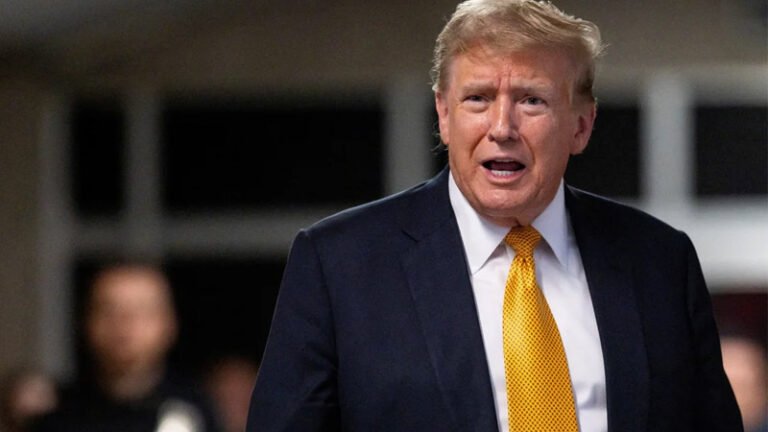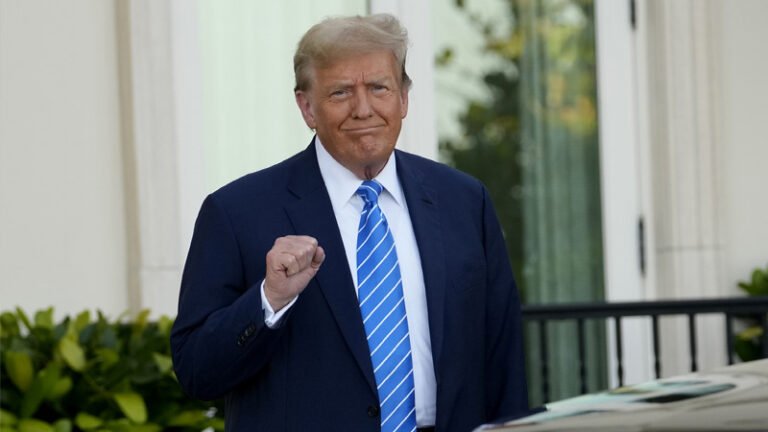
trump ( Joshua Roberts / Reuters)
President Joe Biden successfully worked with international leaders to secure the release of three Americans and one Green Card holder from Russian prisons, a move that drew notable criticism from former President Donald Trump.
According to MSNBC producer Steve Benen, Biden, alongside Vice President Kamala Harris, leveraged diplomatic channels to facilitate the return of the detainees. Benen highlighted the significance of this achievement, noting that Biden and Harris’s successful negotiations are unlikely to be forgotten. This accomplishment is seen as a testament to their effective use of diplomacy in securing the prisoners’ release.
In stark contrast, Trump’s reaction was far from celebratory. Instead of acknowledging the success of the diplomatic effort, Trump took to his social media platform to express his discontent. His posts were filled with pointed questions and criticisms, reflecting his frustration with the deal’s terms.
Trump suggested that the United States might have had to concede significantly to secure the release of the prisoners according to CNN, reflecting his trademark focus on deal-making—a concept central to his public persona and his book, “The Art of the Deal.”
Trump’s dissatisfaction extended beyond criticism of the deal itself. He lamented that the United States was not making favorable deals, particularly in the context of hostage swaps. This sentiment was expressed in his social media commentary, where he contrasted his own supposed track record with the current administration’s approach.
Earlier in May, Trump had claimed on Truth Social that if re-elected, he would be able to secure the release of Evan Gershkovich, a journalist detained in Russia, without making any concessions.
He suggested that Russian President Vladimir Putin would grant the release as a personal favor to him. However, this claim did not hold up in reality, as the deal did not involve any such concessions, and Trump’s predictions were proven false.
Despite these inaccuracies, Trump’s running mate, Senator J.D. Vance, attributed the successful release of the prisoners to Trump’s influence, a statement that Benen criticized. Benen pointed out that Trump’s remarks were not only inaccurate but also reflected a tendency to undermine positive developments for his own country.
Benen also highlighted that Trump’s claims of achieving successful prisoner exchanges without concessions were misleading. For instance, Trump’s 2019 swap with Iran, which secured the release of Princeton University PhD student Xiyue Wang, involved the U.S. agreeing to release an Iranian scientist accused of trying to smuggle biological material.
Similarly, high-ranking Taliban prisoners were released in 2019 to secure the release of two professors, and other exchanges involved giving up prisoners or militants.
Benen emphasized that Trump’s criticism was less about the actual details of the deal and more about his instinct to criticize good news for the country when it didn’t align with his own narrative.
He noted that Trump had no role in the current diplomatic efforts and that Biden’s success was rooted in strengthening alliances that Trump had previously undermined. The agreement, which involved negotiations with Germany, was part of a broader effort by the Biden administration to strengthen international alliances and showcase effective diplomacy.
In summary, while Biden’s diplomatic success in bringing the prisoners home was celebrated by some, it was met with Trump’s characteristic criticism and dissatisfaction, reflecting a broader pattern of his response to achievements he cannot claim credit for or that challenge his own narrative.





